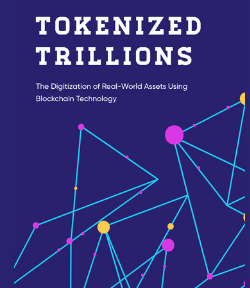
The Great Reflation: How China’s Economic Crisis is Reframing Global Finance and Empowering Bitcoin
How China’s Crisis Could Ignite a Bitcoin Boom.
The unraveling of China’s property market crisis is echoing a familiar global story, but with uniquely Chinese characteristics and profound implications for the future of global finance. Amid a backdrop of government-led interventions, waning public trust in fiat currencies, and surging interest in decentralized assets, the financial landscape in China is poised for transformative shifts – shifts that will ripple across economies worldwide. As Beijing gears up to fight deflation and instability with aggressive stimulus, the impact on assets like Bitcoin may be seismic, underscoring its role as a hedge against fiat devaluation.
Lessons from the West: Corporate Socialism and Capitalism’s Paradoxes
From the 2008 U.S. financial crisis to Japan’s prolonged stagnation and Europe’s struggles with debt, advanced economies have long grappled with the consequences of government bailouts and corporate socialism. In America, the narrative of capitalism as a meritocratic, self-correcting force rings hollow when crises strike. Wall Street was propped up by taxpayer dollars as “too-big-to-fail” institutions were bailed out, transforming what was ostensibly a free-market system into a model of corporate socialism – privatizing gains while socializing losses.
Despite claims of ideological divergence, China’s approach to stabilizing its economy is taking on similar traits, with a centralized twist. Like the U.S. in 2008, China is on the precipice of deploying unprecedented monetary “chemotherapy” – a massive liquidity injection that aims to rejuvenate a deflating economy, primarily benefiting those closest to the source of capital infusion.
China’s Unique Crisis: The Property Market Implosion and Xi’s Red Lines
For China, the roots of economic instability lie in its colossal property bubble, inflated over decades of rapid urbanization and incentivized borrowing. The housing sector became the primary channel for investment and wealth accumulation, propped up by local governments and state-owned enterprises (SOEs) dependent on land sales and real estate financing.
Recognizing the unsustainable trajectory of this growth model, President Xi Jinping introduced the “Three Red Lines” policy in 2020, effectively curbing excessive debt among property developers. This intervention quickly exposed the fragility of the market, as developers struggled to finance new projects, defaults mounted, and confidence in the sector plummeted. The policy initiated a liquidity crisis, leading to economic contraction, and setting the stage for broader instability.

Reflation and the Role of Bitcoin in a Devalued World
As China moves to stabilize its economy, it faces a familiar quandary: How to stimulate growth without further undermining the value of its currency. The People’s Bank of China (PBOC) is now prepared to engage in a form of quantitative easing, purchasing government bonds to boost liquidity. Such actions are intended to support domestic industries, ease credit constraints, and mitigate social unrest, particularly among China’s growing demographic of unemployed youth. However, they also risk significant yuan devaluation.
For Chinese citizens, as well as investors globally, the prospect of aggressive monetary expansion offers a stark reminder of the dangers of fiat currency erosion. With Beijing’s policies likely to drive asset inflation without concurrent wage growth, Bitcoin becomes increasingly attractive as a hedge against currency devaluation.
Bitcoin’s decentralized, deflationary nature stands in contrast to the cyclical boom-bust fiat system. As the global economy increasingly relies on central banks to stave off crises through debt monetization, Bitcoin’s allure grows. Its finite supply and independence from government interference offer an escape from the inflationary spiral that ensnares fiat currencies whenever central banks turn on the money spigots.
China’s Policies and Their Global Impact
China’s adoption of monetary easing, despite cautious framing, is a clear signal of its shift toward financial interventionism. The yuan may be relatively shielded from drastic depreciation due to structural shifts in China’s trade and payment agreements, particularly with countries like Russia and Saudi Arabia, which now accept yuan for commodities. However, the injection of vast liquidity will have inflationary effects, creating an environment ripe for Bitcoin adoption among Chinese investors seeking stability outside state control.
For global markets, China’s actions could reinforce a broader trend towards monetary expansion. As central banks in advanced economies, including the Federal Reserve and European Central Bank, also pivot to stimulus to manage slowing growth, Bitcoin’s appeal as a universal store of value is likely to grow. Investors will increasingly look to it as an inflation-resistant asset that retains purchasing power amidst fiat dilution.
Despite government restrictions on cryptocurrency exchanges, China maintains a thriving peer-to-peer (P2P) Bitcoin market. Chinese citizens can leverage P2P platforms to trade yuan for Bitcoin, sidestepping state controls and establishing a decentralized on-ramp to digital assets. In a nation where state policy shapes nearly every facet of life, Bitcoin provides an alternative – a quiet rebellion and a form of financial autonomy.
The re-emergence of this underground market could become a powerful force as Beijing escalates its reflation efforts. Historically, Bitcoin has responded to expansionary policies with impressive gains, as seen following the Fed’s balance sheet expansion in 2020-2021. With the PBOC poised for a similar approach, Chinese demand for Bitcoin may surge, echoing the currency’s past performance during crises in other economies.
Bitcoin as the Ultimate Hedge
China’s economic turmoil underscores the vulnerabilities of state-controlled capitalism and highlights a growing global appetite for decentralized assets. For investors worldwide, Bitcoin offers a means to preserve wealth amid the uncertainties of fiat-based economies. While its growth may be gradual, the effects of reflationary policies – whether in China, the U.S., or the EU – are unlikely to abate.
As the PBOC prepares to inject liquidity and drive up asset prices, Bitcoin’s narrative as a store of value becomes even more compelling. It represents not only a hedge against fiat devaluation but also a form of financial sovereignty – a quality that resonates deeply in a world where state intervention often favors the elite at the expense of the many. In this light, Bitcoin emerges as a lifeboat in a sea of monetary uncertainty, poised to benefit as more people seek refuge from the consequences of centralized, debt-laden economies.
This is not just a Chinese story, nor simply a moment for Bitcoin; it is a global shift in how individuals interact with and protect their financial futures in the face of mounting systemic instability.






